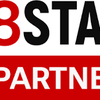While browsing through some recent forums on betting transparency, I was introduced to an insightful article that dissected the essential role of gambling site verification services in protecting players online. In the midst of it, I found this while reading a comparison between gambling verification (
먹튀검증) and ,
olbg each noted for presenting clear evaluations of gambling platforms' legitimacy. This specific section stood out to me not just for its depth but for how it peeled back the surface of shiny bonuses and promotions to examine the core of what makes a gambling site trustworthy. It spoke to my own experience of trying out various platforms—some reliable, others not so much—and clarified the importance of having dedicated services that examine license status, payout reliability, and user feedback. Rather than blindly registering on a sleek-looking site, these verification hubs provide a layer of defense by flagging suspicious practices and highlighting platforms with consistent credibility. The piece also explored how verification services help decode complex terms and conditions often buried deep in fine print—areas where less experienced users tend to get trapped. Having previously run into questionable payout structures and ambiguous bonus restrictions, I could relate to this on a personal level. The fact that these verification platforms provide breakdowns, historical performance data, and user reviews gave me a better lens through which to judge future betting sites. It’s not about just gambling anymore—it’s about gambling safely and intelligently, and the referenced sites made that transition feel far more attainable.
Understanding the Inner Workings of Verification Services
Delving further into the mechanics of gambling site verification services reveals a multi-layered process that many bettors never realize exists. These platforms aren’t simply compiling blacklists or giving stars to popular casinos. Instead, they’re curating detailed audits that evaluate how a site operates behind the curtain—from software providers and banking systems to dispute resolution records and licensing jurisdictions. It's this comprehensive review model that separates true verification services from casual review blogs or affiliate networks with profit-driven motives.
The first layer typically involves checking licensing credentials. A surprising number of online betting platforms either operate under minimal regulation or fake their licenses entirely. Legitimate verification services can confirm whether a site is registered with reputable regulators like the Malta Gaming Authority, the UK Gambling Commission, or equivalent bodies in other jurisdictions. This basic step alone eliminates a wide swath of unreliable operators. But that’s just the beginning.
Once licensing is confirmed, verification services dive deeper into transactional performance—this includes monitoring payout speeds, failure rates, chargeback histories, and whether users frequently report delayed or canceled withdrawals. For the average user who may only place a handful of bets per month, these trends are invisible. But through aggregated data, verification services can expose chronic patterns of abuse or negligence.
Another underappreciated function is transparency scoring. Most users click “I agree” on terms and conditions without reading them, often signing away basic protections in the process. Verification platforms parse these documents and grade sites based on how clearly they explain bonuses, wagering requirements, and account restrictions. This not only empowers users to make informed decisions but also pressures gambling operators to simplify and clarify their own rules to maintain reputational standing.
Cybersecurity is also a rising priority. With phishing scams, cloned websites, and compromised data exchanges becoming more common, verification services assess whether a betting platform uses current encryption standards, two-factor authentication, and secure payment channels. For users inputting personal and financial information, these details matter more than flashy interfaces or bonus multipliers.
Finally, community feedback loops keep verification services dynamic. Rather than operating from outdated metrics or one-time reviews, these platforms allow users to submit their own reports, ratings, and complaint resolutions. This continuous stream of public data ensures that a site’s reputation can rise or fall with its real-time behavior. It’s a model that feels democratic and user-first in contrast to rigid watchdog agencies.
Altogether, the process of site verification isn’t just a protective layer—it’s a strategic tool. It offers users a chance to bet smarter, filter out manipulation, and align with platforms that prioritize fairness and integrity. In an era where online visibility can be manufactured, verification services offer a rare form of substance over style.
Why Betting Communities Should Champion Verification Awareness
Despite the growing sophistication of gambling site verification services, a large portion of the betting public remains unaware—or uninterested—in their existence. That’s not due to negligence, necessarily, but more a symptom of how online gaming has been marketed. Flashy ads, “risk-free” offers, and influencer endorsements crowd out messaging about safety, research, or platform legitimacy. This is where the community itself needs to step in.
Forum users, content creators, and betting strategists have a responsibility to champion the use of verification tools, not as a buzzkill but as a baseline for responsible gaming. Just as one wouldn’t use a financial service or shop from a new e-commerce site without checking reviews, the same scrutiny must apply to platforms handling real money gambling. By normalizing this habit, communities can shift the focus from thrill-seeking to educated risk.
Educational outreach is crucial. Verification services themselves should invest in simpler explainer content—whether that’s short video tutorials, digestible case studies, or user testimonials highlighting how these tools saved someone from fraud. People are far more likely to explore a tool when they can see exactly how it applies to their daily habits.
There's also room for partnership between betting influencers and verification services. Instead of promoting referral links to random platforms, creators could align with vetted services and demonstrate real-time usage: how to search a site’s rating, where to read user reviews, and what red flags to watch for. This not only benefits their audience but builds long-term trust.
Beyond education, there’s advocacy. Some verification platforms are now pushing to be recognized by government regulators or consumer protection boards. If verified lists become part of official gambling licenses or endorsements, it will create a natural hierarchy where safer platforms are incentivized to improve and dangerous ones are squeezed out.
Peer validation can also play a key role. Encouraging betting groups or leagues to adopt verification checkpoints before joining a new platform—like sharing the site’s score from a verification tool—adds a subtle layer of social accountability. It transforms verification from a solitary research task into a shared standard.
Perhaps the biggest long-term benefit is psychological. When players are taught to evaluate platforms critically, they begin to question the gambling experience more holistically. They become more aware of spending patterns, probability structures, and cognitive biases. They stop chasing losses or being seduced by interface glitz, and start approaching betting like any other activity that requires research, skepticism, and strategy.
Ultimately, gambling site verification services aren’t just technical tools—they’re cultural instruments. They have the power to redefine what responsible gaming looks like in a digital age. The more visible they become, the stronger the collective resistance to fraud, manipulation, and exploitation will be. For a community that thrives on information and odds, embracing site verification is not only logical—it’s vital.



